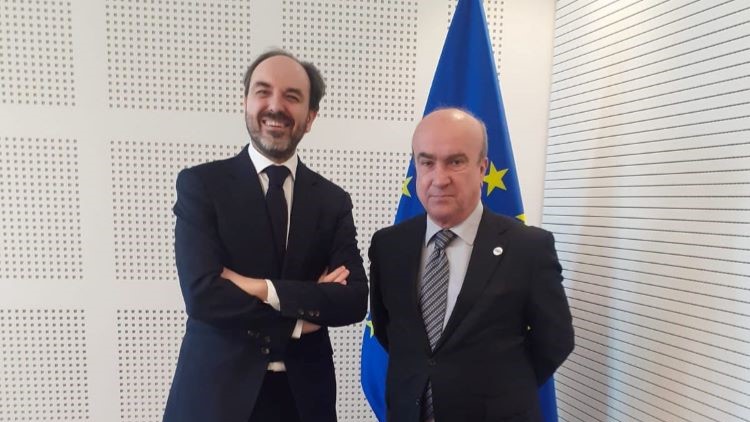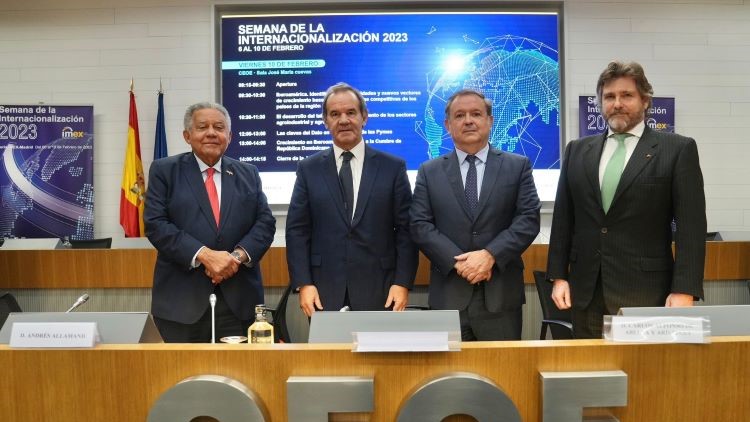The Diplomat
The Secretary General of the Organization of Ibero-American States for Education, Science and Culture (OEI), Mariano Jabonero, traveled this week to Brussels to offer “the mechanisms and working tools” of the organization in order to consolidate relations between Europe and Ibero-America in the areas of education, science, culture, languages and human rights.
In Brussels, where he arrived on Wednesday, Jabonero explained to the representatives of the institutions of the European Union the strategic lines of the organization, approved at the recent Board of Directors. Specifically, the Secretary General met with members of the European External Action Service (EEAS), the Directorate General for International Partnerships (DG INTPA) and the European Parliament, as well as with representatives of Spanish diplomacy based in the Belgian capital. Also participating in the mission were the director of the Ibero-American Program for Human Rights, Democracy and Equality, Irune Aguirrezabal, and Donatella Montaldo, specialist in Multilateral Relations of the General Secretariat of the OEI.
The day included a meeting with Marcos Alonso, Spain’s ambassador and permanent representative to the European Union, and later with members of the Euro-Latin American Parliamentary Assembly (EUROLAT), headed by Javier López, co-president of this corporation. The meeting was attended by members of each parliamentary group responsible for Latin America, such as Maria Manuel Leitao Marques, Ibán García del Blanco, Izaskun Bilbao, Jordi Cañas and Leopoldo López.
Jabonero also had the opportunity to meet with Enrique Mora, Deputy Secretary General of the EEAS, as well as with Brian Glynn, Director for the Americas of the EEAS. He also met with the Deputy Director, Javier Niño, and with the person in charge of Latin American affairs in Josep Borrell’s Cabinet, Pelayo Castro, with whom he talked about the next CELAC-EU summit which will take place within the framework of Spain’s Presidency of the EU, and about the need to revitalize the role of Latin America and the Caribbean as a priority region for the European Union’s foreign relations.
In this regard, the Secretary General presented the report New Ibero-American-European Union cooperation agenda, prepared by the OEI, which presents the keys for the relaunching of the work agenda between the two regions and which points, in particular, to issues such as technological innovation, digital educational transformation, cultural citizenship and ecological transition as the most urgent areas of work in terms of cooperation.
Later, at the headquarters of the Directorate for Latin America and the Caribbean of DG-INTPA, Jabonero made a presentation of the main initiatives led by the OEI with the support of the European Union in countries of the region, such as the EU Public Diplomacy project in Latin America -which since 2016 has had an impact in Argentina, Brazil, Chile, Colombia, Peru and Uruguay-, or the Program for the Strengthening of Science and Technology Systems (FORCYT). I also present new proposals for joint projects that support the transformation of education, human rights, democracy and equality in Ibero-America.
In 2014, the Organization of Ibero-American States (OEI) received accreditation from the European Union for the implementation of delegated cooperation projects, which has made it a strategic partner for the achievement of the objectives shared by both organizations in Ibero-American countries.







